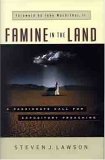Do Hard Things

Alex and Brett Harris have a message for their generation:
Most People don’t expect you to understand what we’re going to tell you in this book. And even if you understand, they don’t expect you to care. And eve if you care, they don’t expect you to do anything about it. And even if you do something about it, they don’t expect it to last. We do.
Their powerful message is captured in these words and put succinctly in the title: Do Hard Things. They are spreading the message of “A teenage rebellion against low expectations.” The Harris brothers are challenging and exhorting their generation to rise above the ridiculously low expectations the world has for the average teenager.
This book is filled with real life examples of young people doing hard things and in ways small and large refusing the norms of society and accomplishing great things. Their focus is not just to do things that are hard, but to do worthy things that are hard.
This book is primarily written to teens, but all ages will benefit from this message. Adults also shrink back from right and worthy things because they are hard. I enthusiastically recommend this book.
Missionary Biography

The Secret File on John Birch by James and Marti Hefley is the life story of John Birch. Birch was born in India to missionary parents, but he grew up in the United States when, for medical reasons, his family had to return home. He was a Southern Baptist missionary to China.
Birch went to China before the U. S. entered the second World War. He arrived when China was partially occupied by the Japanese. After Pearl Harbor was attacked, the U. S. entered the war and many missionaries in China were evacuated, but Birch stayed in China. Birch volunteered for the Army and became an intelligence officer in China. He was murdered by the communists after the end of the war.
This book is written from the conspiratorial perspective, which is disappointing because the spiritual aspects of Birch’s life are much more important and edifying. I highly recommend this book so long as you are not caught up with the conspiracy aspect.
Expository Preaching

Famine In The Land by Steven Lawson sets forth the virtues of expository preaching. As the title suggests, the author sees a shortage of this food from the Word. Lawson makes a good case for the mode of preaching as being expository.
Exposition should be a part of our preaching in the church. Even when preaching topically, exposition should be used. Though there are various methods of delivering sermons, all biblical preaching will be based on accurate and faithful exposition of the Scripture. The skilled preacher will be versed in various methods, using them carefully and skillfully to best communicate the truth of God’s Word to his hearers.
Lawson’s book is worth reading and hopefully it will stir up some fire for this most excellent method of preaching.
Argument

First of all, argument here does not refer to the equivalent of a verbal fistfight. Rather, argument refers to reasoning and rhetoric. It is generally persuasive in style, or at least should be, and should reasonably follow standards of logic or critical thinking. Argument is defining, expounding, and defending a proposition or premise. It may also be the reverse if it is aimed at deconstructing an erroneous conclusion.
Therefore, argument is of extreme importance to preachers. It is the preacher’s vocation to be defining, expounding, and defending the propositions of Holy Scripture. For that matter, every Christian is to conscientiously defend and contend for the faith and should be concerned about good argument evaluation and construction.
In this vein, I recommend A Rulebook for Arguments by Anthony Weston. This is a rulebook as the title suggests, but it is concise and readable. The book should be read through one time and then referred to often when analyzing or building arguments. Its brevity is one aspect of its value. You can refer to a section and quickly refresh your memory about some concept. The author does also give some sources for larger works if the reader is interested.

This book is geared toward argumentative writing but it is not really a rulebook for writing specifically. For this I would recommend Elements of Style by Strunk and White. Elements is likewise concise and readable. Both books are valuable resource to have for preachers even if you do not plan on publishing any of your own materials. A judicious use of both books will aid the preacher in the preparation of sermons.







